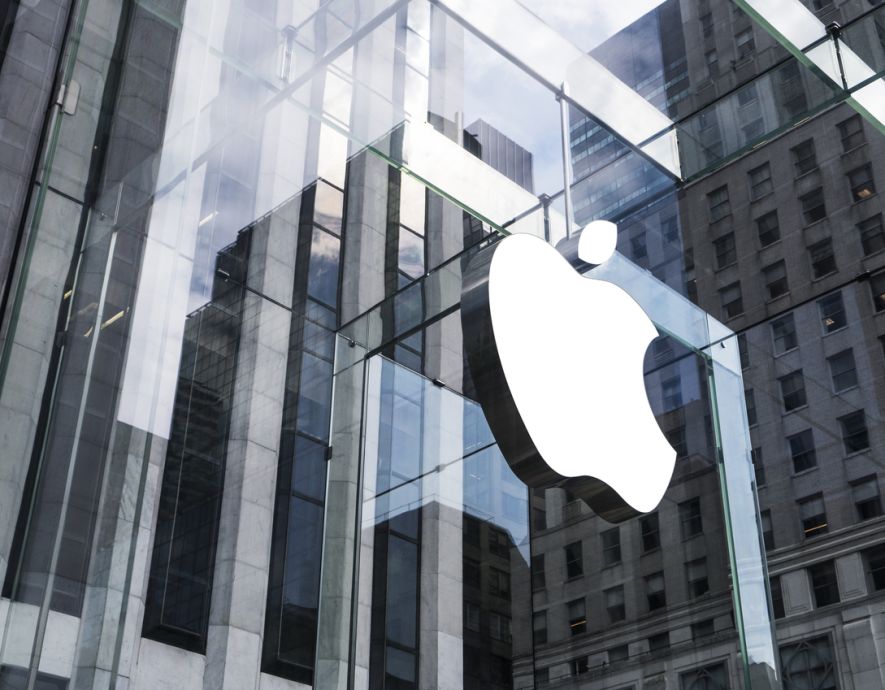
- Home
- Digital transformation
- Regulating competition in the AI market: a new David versus Goliath?
Regulating competition in the AI market: a new David versus Goliath?


After the AI Act, the European Competition Authority’s proceedings against Microsoft, OpenIA and generative AI, now it’s the turn of the French Competition Authority to take a closer look at AI. At issue is the concentration and vertical integration of the market, which could kill off all competition. So much so that it could turn tech giants into empires?
The generative AI market is being securitized by the French Competition Authority. Considering the « high stakes and rapid evolution of this sector« , the French independent administrative body announced on February 8, 2024, that it had launched its own investigation to « analyze its competitive functioning« . Its focus is on upstream and downstream market concentration, in particular « practices by players already present in cloud computing infrastructure« .
It must be said that the size of the pie is already colossal and set to grow by leaps and bounds over the next few years. Estimated at $42 billion in 2023 by Statista, i.e., double the figure for 2022, the generative AI market « is expected to grow by an average of 24% per year, reaching annual sales of over €200 billion by 2030« , the statistics institute estimates.
The sums in play are guaranteed to whet appetites. And the French competition authority is right to point out that dominant cloud players « already control key inputs or adjacent markets » and will be tempted to take advantage of this to secure control of downstream services. This « vertical integration » could « exclude competing foundation models or the market entry of companies active further down the value chain of generative AI« , the competition watchdog fears.
Chips for ChatGPT: a $7 trillion project
In fact, the process is already underway, particularly for cloud players. They are owners or operators of the essential big data that fuels AI’s learning processes, the masters of patents, commercial applications and often the devices or networks that harness AI. Their vertical integration extends to the production of processors dedicated solely to running AI foundation models, such as « Trainium », produced by Amazon Web Services (AWS) or « Artemis », the in-house chip from Meta (Facebook, Instagram, WhatsApp and Oculus VR.). They compete with chips from traditional foundries such as AMD and designers like Nvidia.
However, they could soon be overtaken by…Open AI. Sam Altman, founder of the startup behind ChatGPT, has been shopping around for investment funds to design and build his own semiconductor manufacturing equipment since January 2024. According to an article in the Wall Street Journal published on February 8, 2024, it could raise between $5 trillion and $7 trillion. This is set to shake up the semiconductor industry and crush the competition in this strategic sector.
He is looking to bring together investors, energy suppliers and chip manufacturers to produce next-generation semiconductors that can boost ChatGPT’s performance. If such a project were to see the light of day, the competition authority would have a lot to worry about, as would the Microsoft/ChatGPT alliance’s competitors.
Microsoft/OpenAI: have they merged or not?
While we await a new phase in the chip war, the competition rages on for services boosted by generative AI. Market concentration is a cause for concern here too. In 2022, ChatGPT dominated the competition with a 19.7% share of the text generator market, compared with 13.4% for Jasper Chat, again according to Statista. Consequently, the UK competition authority is now looking into the partnership between Microsoft and OpenAI. At the beginning of December 2023, the Competition and Markets Authority (CMA) announced that it would be investigating whether the deal amounted to a merger.
Furthermore, the European authorities have once again set their sights on Microsoft, which is accustomed to proceedings for abuse of a dominant position. In early January 2024, the Commission decided to verify whether « Microsoft’s investment in OpenAI is reviewable under the EU Merger Regulation« . Brussels is concerned about possible excessive market concentration and the cornering of innovation by tech giants.
Meanwhile, the Commission announced that it had launched « two calls for papers on competition« , one concerning « virtual worlds » and the other « generative artificial intelligence« . This is a longstanding concern: the European Union pioneered the regulation of artificial intelligence with its AI Act, which was reworked at the last minute to take account of ChatGPT’s rapid rise. Approved by the 27 Member States on February 2, 2024, the regulation has raised fears, particularly in France.
A powerless Brussels
« We can regulate much faster than our competitors, but we have to be at the right speed. If we lose leaders because of this, we’ll have to review it, » said Emmanuel Macron, fearing that the European legislation would hamper the growth of French companies like Mistral AI, or their German counterparts such as Aleph Alpha.
The text prohibits « biometric categorization systems using sensitive characteristics (e.g., political, religious or philosophical opinions, sexual orientation, race) » and other applications deemed too dangerous. For others, it sets out obligations according to the AI system’s level of risk, going as far as pre-market impact studies for the most sensitive systems. ChatGPT’s arrival led to a shift in this model, and the regulations now place greater emphasis on introducing stricter obligations for « high-impact » foundation models, such as GPT-4.
The problem is how to define « strong impact« . By the computing power required to train the model and then run it? The user base or the volume of data fed into the model? All these criteria are necessary, but not sufficient. Nevertheless, they all point to companies that have achieved significant economies of scale with their cloud services, hyperscalers like Amazon’s AWS, Microsoft’s Azure and Alphabet’s Google Cloud. The DMA (Digital Market Act), however, has so far failed to designate a single cloud service as a gatekeeper to the digital market.
Vertical integration: a nightmare for competitors
While we wait for the AI Act to take effect (or not), the market for generative AI is booming. However, there is a fear that most players who embark on this adventure will not be able to go the distance given the high infrastructure costs associated with powerful AI models. And the market continues to become more concentrated, with the giants using several processes to consolidate their position.
First, they stifle competition by launching a multitude of offerings, such as AWS launching Amazon Q, a virtual assistant for businesses designed to compete with Microsoft’s Copilot or Salesforce’s Einstein Copilot. It will be « able to consult companies’ databases and initiate recommendation actions based on this data to boost their productivity« , Stephan Hadinger, Technical Director of AWS in France, told Le Figaro. How will GenIA-L, the legal AI developed by the French publisher Dalloz, measure up when AWS decides to target this market?
Hyperscalers are also sure to have their customers use their cloud infrastructures when using their generative AI models, as part of « bundle » offers. This model not only links hardware and software offerings, but also ranges of services, or even directly integrates them into other software, such as Microsoft Copilot, the Redmont-based company’s generative AI integrated into its Edge browser, Bing search engine and Windows 11 operating system.
The AI Act: too little too late?
Why go looking for another « smart » chatbot when you have one available right from the taskbar? In short, it is the same process that cost the company a €560 million fine from Brussels for failing to provide an alternative to its Internet Explorer browser. This decision was made in 2013 when « in 2009, the Commission had made these commitments legally binding on Microsoft until 2014« , in Brussels’ words.
This is undoubtedly the main pitfall of both competition authority procedures and European and national legislation. Their tempo remains out of step with the market and innovation, dooming them to rule on situations or products that are obsolete. The AI Act will come into force in 2025, and until then, technology will continue to evolve, and further consolidation will take place.
This trend seems to be proving Nicolas Miailhe right. In his 2018 article « Géopolitique de l’Intelligence artificielle : le retour des empires ? » he already deemed it « possible that IA could provoke, or reinforce, a global trend towards the centralization of power in the hands of a few players« . In an article published in Politique Étrangère magazine, he was quick to assert that « the frontiers of these new public-private digital empires will expand to a continental scale« . This scenario is already upon us, and it seems unlikely that legislators and regulators will be able to do much about it.
the newsletter
the newsletter



